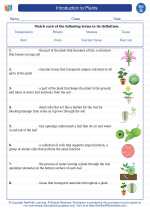Introduction to Plants
Plants are living organisms that belong to the kingdom Plantae. They are essential for life on Earth as they produce oxygen, food, and provide habitats for many organisms. Understanding the basics of plant biology is important in science education.
Topics to Cover:
- Plant Classification
- Plant Structure and Function
- Photosynthesis
- Reproduction in Plants
- Plant Adaptations
Study Guide:
1. Plant Classification
Learn about the different groups of plants such as mosses, ferns, gymnosperms, and angiosperms. Understand the characteristics and examples of each group.
2. Plant Structure and Function
Understand the basic structure of a plant including roots, stems, leaves, and flowers. Learn about the functions of each plant part and how they contribute to the overall health of the plant.
3. Photosynthesis
Study the process of photosynthesis, including the role of chlorophyll, light, carbon dioxide, and water in the production of glucose and oxygen.
4. Reproduction in Plants
Explore the different methods of plant reproduction including asexual reproduction (e.g. vegetative propagation) and sexual reproduction (e.g. pollination, fertilization).
5. Plant Adaptations
Investigate the various adaptations that plants have developed to survive in different environments, such as desert plants, aquatic plants, and epiphytes.
Resources for Further Study:
- Textbooks on Botany
- Online videos and tutorials
- Botanical gardens or nature reserves for hands-on learning
◂Science Worksheets and Study Guides Seventh Grade. Introduction to Plants
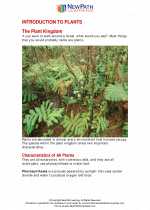
 Worksheet/Answer key
Worksheet/Answer key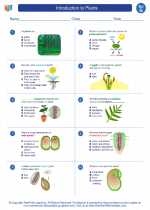
 Worksheet/Answer key
Worksheet/Answer key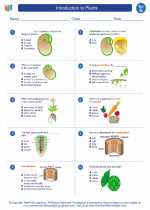
 Worksheet/Answer key
Worksheet/Answer key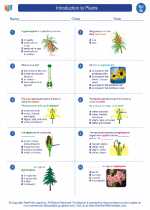
 Worksheet/Answer key
Worksheet/Answer key
 Vocabulary/Answer key
Vocabulary/Answer key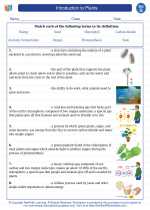
 Vocabulary/Answer key
Vocabulary/Answer key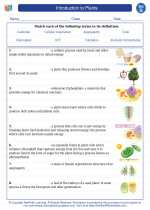
 Vocabulary/Answer key
Vocabulary/Answer key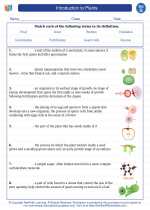
 Vocabulary/Answer key
Vocabulary/Answer key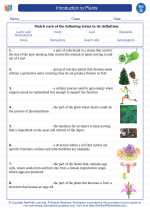
 Vocabulary/Answer key
Vocabulary/Answer key